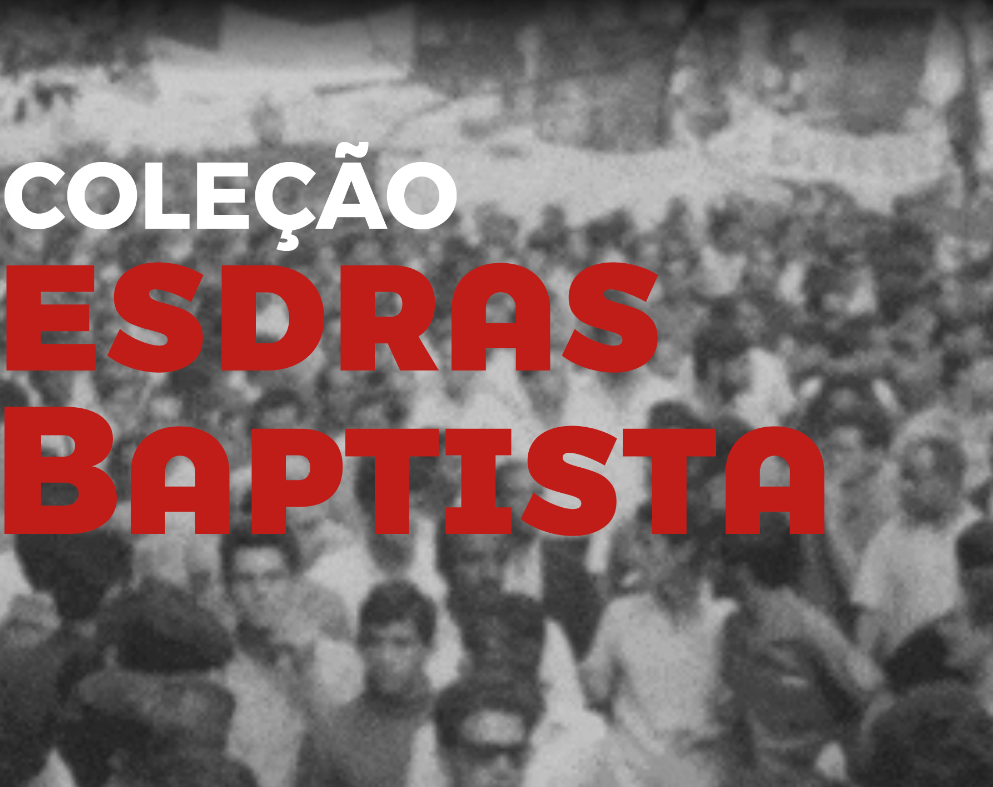The Audiovisual Preservation University Lab (LUPA) is an academic laboratory under the Department of Film and Video at the Institute of Art and Media (IACS) of the Fluminense Federal University (UFF), located in the city of Niterói, Brazil.
Our aim is to support the audiovisual preservation teaching, research, and extension activities developed by the UFF Department of Film and Video and help promote and preserve amateur cinema produced in the State of Rio de Janeiro.
Background
The creation of LUPA was an outgrowth of the pioneering initiative of the UFF Cinema and Audiovisual BA Program, which was the first university program in the country to offer an elective course on audiovisual preservation, starting in the year 2000. Later retitled Preservation, Memory and Policies of Audiovisual Collections, it has been offered as a compulsory course in the Cinema and Audiovisual undergraduate program since the implementation of the new curriculum in 2005, fulfilling the demand of the
student body.
The UFF Film School has partnered with various institutions – the partnership with the Cinemateca do MAM (Film Archive of the Museum of Modern Art of Rio de Janeiro), signed in 2016, is of special note – to train audiovisual preservation professionals. Several of them have successfully gone on to work in safeguarding institutions, head professional associations, and conduct research and projects in the field.
The idea for LUPA was conceived in 2014 during the planning of the new IACS facilities, to be built at the Gragoatá Campus, with an infrastructure that would allow audiovisual preservation teaching, extension, and research activities to be conducted on university grounds. The lab would not only develop audiovisual preservation activities for the UFF Department of Film and Video, but also operate as a regional and thematic university film archive dedicated to amateur cinema produced in the State of Rio de Janeiro. In fact, LUPA is the first regional and thematic university film archive in Brazil.
Even though its permanent facilities had not yet been completed, LUPA formally began its activities in 2017 upon receiving donations of 9.5mm and 16mm amateur films shot in the cities of Rio de Janeiro and Teresópolis in the 1930s and 1940s. These reels were then sent to the Cinemateca Brasileira (Brazilian Film Archive), in São Paulo, to be digitized, a collaboration made possible by the agreement between UFF and the MAM Film Archive. In August 2017, the first public presentation of these films was held at the 1 st Brazilian Film History Conference, and since then they have been available on our website.
This first public action effectively started the lab’s activities. Following this event, LUPA reiterated its commitment to contribute to the safeguarding of Brazilian audiovisual heritage, concentrating on amateur cinema from the State of Rio de Janeiro and expanding training and research activities in the field.
Since 2017, LUPA has established a workspace to inspect, analyze, repair, and screen 9.5mm, 8mm and 16mm films; it has gathered and restored the historic film equipment collection of the UFF Department of Film and Video; and it has expanded its own amateur film collection. The lab is currently dedicated to the creation of a setup for digitizing narrow-gauge films, the first in Brazil.
Among LUPA’s most recent projects, a few highlights are: the annual editions of the Home Movie Day since 2018; the Audiovisual Preservation Exchange Program APEX Rio 2018, a partnership with the New York University Tisch’s Moving Image Archiving and Preservation Program (MIAP-NYU); the BRICS Audiovisual Preservation Meeting and two historic film equipment exhibitions, both events held during the 4th BRICS Film Festival, hosted by UFF in 2019; and the compilation of the full filmography produced by the UFF Cinema and Audiovisual undergraduate program from 1972 to 2018. The lab’s projects are funded by the Brazilian National Council for Scientific and Technological Development (CNPq), the Carlos Chagas Filho Research Support Foundation of the State of Rio de Janeiro (FAPERJ), and the Municipal Secretariat of Culture of Niterói.



